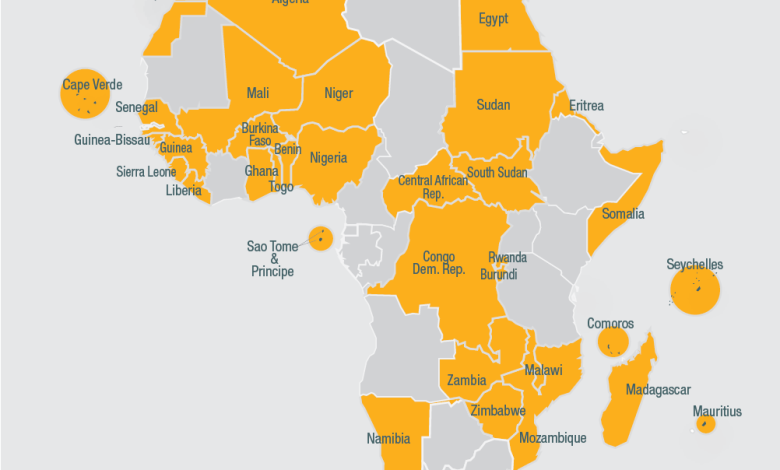Africa’s Economic Growth Surges Amid Global Changes in 2024

Financial institutions have unveiled their forecasts for Africa’s fiscal journey in the new year, painting a promising picture despite global uncertainties. Experts project a 4.2% growth for the continent, in line with the International Monetary Fund’s expectations. This surge is anticipated to be propelled by increased private consumption and investments, expected to elevate GDP in around 80% of African nations.
The continental economy faced a slight slowdown from 3.9% in 2022 to 3.6% in 2023, attributed to central bank interest rate hikes amidst global inflation and the reverberations of the Ukraine conflict on international commerce, leading to vulnerabilities in intercontinental trade.
Forecasts indicate a buoyant economic landscape, especially for countries rich in natural resources and industrial production. Approximately 21 nations, including Ivory Coast, Kenya, Uganda, and Mozambique, are set to witness a robust 6.2% growth in 2024, surpassing the average projection. Senegal stands out among them, poised for a significant upswing, largely driven by the upcoming natural gas project, forecasting a staggering 10.6% growth—anchored in West Africa, neighboring Venezuela, Brazil, and Suriname.
READ ALSO: Nigeria must Shun Borrowing and Turns to Domestic Resources for 2024 Budget- Wale Edun
However, a contrasting outlook looms over some economies, particularly oil-exporting nations like Angola, Nigeria, South Sudan, and Equatorial Guinea, expected to grapple with plummeting oil prices and currency depreciation.
Analysts emphasize the pivotal role of three global factors in shaping Africa’s future growth trajectory. As the aftermath of the Ukraine conflict dissipates, an improved global economic landscape could translate into enhanced export opportunities and streamlined supply chains—hinging on resolving the Suez Canal situation. Foreseen declines in global inflation, monetary policy adjustments by major central banks, and a projected 6% drop in crude oil prices may also positively impact growth, favoring the two-thirds of the region’s GDP contributed by net fuel importing nations.
For deeper insights into Africa’s economic landscape, the focus narrows to the GDP per capita of leading African nations:
Botswana: Estimated GDP per capita in 2024 is $7,539, primarily driven by tourism, natural resources, and agriculture.
South Africa: With a diverse economy spanning mining, agriculture, and services, the estimated GDP per capita in 2024 is $6,121.
Egypt: A multifaceted economy focused on tourism, oil and gas, and agriculture, estimates a GDP per capita of $4,693.
Morocco: Supported by tourism, agriculture, industry, and services, the estimated GDP per capita in 2024 is $3,526.
Angola: Heavily reliant on oil and natural resources, the estimated GDP per capita in 2024 is $2,452.
Ghana: Agriculture, petroleum, and services drive the economy, with an estimated GDP per capita of $2,241 in 2024.
Kenya: A regional economic powerhouse with a diverse economy, estimating a GDP per capita of $1,953 in 2024.
Ethiopia: Advancements in agriculture, manufacturing, and infrastructure contribute to an estimated GDP per capita of $1,787 in 2024.
Senegal: Reliant on natural resources, agriculture, and production, estimates put GDP per capita at $1,773 in 2024.
Nigeria: Primarily involved in oil and gas sectors, Nigeria’s estimated GDP per capita in 2024 is $1,734.
Tanzania: Agriculture, tourism, and natural resources fuel the economy, with an estimated GDP per capita of $1,241 in 2024.
Rwanda: Predominantly driven by agriculture and tourism, Rwanda estimates a GDP per capita of $1,064 in 2024.
The consistent assertion remains: Africa is poised as the next frontier for global business, attracting investments that will significantly impact its gross national income, promising greater prosperity and quality of life. The continent’s GDP has seen a remarkable 75% surge in just seven years, painting a vivid picture of Africa’s potential income levels by 2050.
For the detailed GDP trajectory of Africa from 2020 to 2027, the figures showcase a steady climb, reinforcing the optimistic projections for Africa’s economic future.
Source: Allafrica





